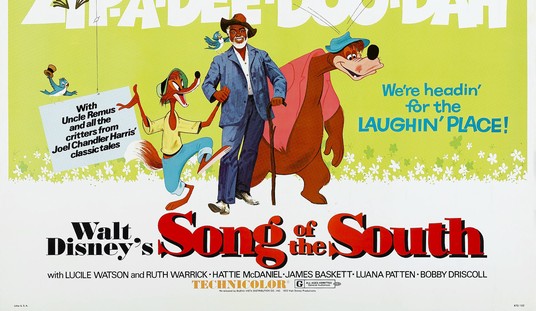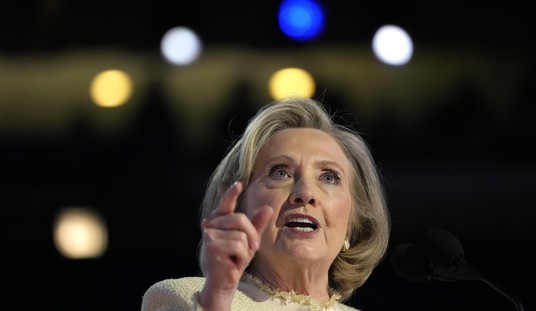Governor Rick Perry was in Iowa this weekend and during an interview on ABC’s This Week, he raised the $64,000 question about a potential Chris Christie presidential candidacy:
Gov. Rick Perry of Texas credited Chris Christie for his re-election in New Jersey, but he pointedly questioned whether the 22-point victory by Christie held any greater meaning for the Republican Party.
“Is a conservative in New Jersey a conservative in the rest of the country?” Perry said in an interview with “This Week.” “We’ll have that discussion at the appropriate time.”
As he made his first visit back to Iowa since the 2012 presidential race, Perry left the door open to another presidential bid. He said he believed voters would give him an opportunity to make a second impression, if he decided to run again, even though his first campaign fizzled amid a series of high-profile gaffes.
“Second chances are what America has always been about,” Perry said.
In a wide-ranging interview here, during a two-day visit to Iowa, Perry said the divisions among Republicans have been healthy for the party. But he said it was time for the establishment and tea party wings to rally around at least one shared goal: supporting strong candidates who can win.
“If you can’t win elections, you can’t govern,” Perry said. “So winning an election is really important.”
The truth? Chris Christie may have a shot at getting elected dog catcher in Alabama or Mississippi. But win a Republican primary for president? I exaggerate, of course, but Perry’s perceptive question is at the heart of the disagreement between GOP factions.
From west to east, north to south conservatism has evolved differently, having to confront different issues and develop distinct personalities to be successful. Despite the homogenizing effects of mass media, each region in America differs from the next in big and small ways (it was actually a much more politically significant difference 50 years ago, but that’s a subject that deserves separate attention). Conservatives in the Midwest don’t care about water rights as they do in the west, and Northeastern conservatives have less interest in rural issues than Southern conservatives.
As Perry notes, these differences will make it hard for Christie to light a fire under conservatives in much of the rest of the country. The New Jersey governor’s path to victory will be narrow and depend much on perception and atmospherics.
Ross Douthat with some advice for Christie:
As a would-be nominee, you have to woo base voters, not run against them, and make them feel respected even when they disagree with you. This doesn’t mean muzzling yourself, or pandering to every right-wing interest group. But it means persuading conservatives that you like them, that you understand them and that as president you’re going to be (mostly) on their side.
Don’t be Rudy Giuliani. You probably think you wouldn’t have Rudy’s problems in a Republican primary. Yes, you’re both combative Northeasterners from the party’s moderate flank, but unlike the former mayor you aren’t a social liberal with a public history of adultery (and a few drag performances thrown in).
But what felled Giuliani in 2008 wasn’t just “values” issues. It was the former mayor’s apparent belief that being a national hero was a sufficient qualification to be president — that he could just show up, be “Rudy,” and the rest would take care of itself.
As another charismatic politician defined by your handling of a catastrophe, you’re vulnerable to the same temptation: the belief that you, personally, are the solution to the Republican Party’s many problems, and that you can just run on your own awesomeness without specifying where you would take the country if you won. That act wears thin in a long campaign, and it’s likely to wear especially thin in a party that needs a new agenda as badly as Republicans do today. Which brings us to …
Don’t assume that what worked in Jersey will work nationally. In state-of-the-party arguments, you and your fellow Republican governors love to contrast your successes with the national party’s struggles. But those successes have been made possible by crucial differences between state-level issues and national ones.
In New Jersey, for instance, you’ve been able to successfully isolate public-sector unions, portraying them as drains on middle-class tax dollars and enemies of the common good. But in national budget debates, the biggest issues are popular entitlement programs, not teacher salaries or bureaucrats’ health benefits. And you probably aren’t going to win the presidency wagging your finger at Social Security recipients, or painting the poor and elderly as dangerous special-interest groups.
He can win the presidency by making Democrats and big government the issue in 2016, hammering them relentlessly as a party of failure. But can he convince enough conservatives elsewhere in the country that he is the answer in order to win the nomination? I think he can — if both Christie and conservatives give each other a chance to prove it. That’s a lot to ask of the mercurial Christie and the quick-to-condemn right wing. And Christie may have other, hidden baggage that would make him unacceptable to voters in a general election.
Perry and other GOP governors will bide their time and let Christie absorb the media spotlight for a while. Eventually, Christie will be running against flesh-and-blood conservatives and not the sort he has been shadowboxing with for the last year. It remains to be seen if his brand of conservative governance can catch on with the right elsewhere in the country when stacked against the ideas and personalities of those more beloved of the right than he.










Join the conversation as a VIP Member